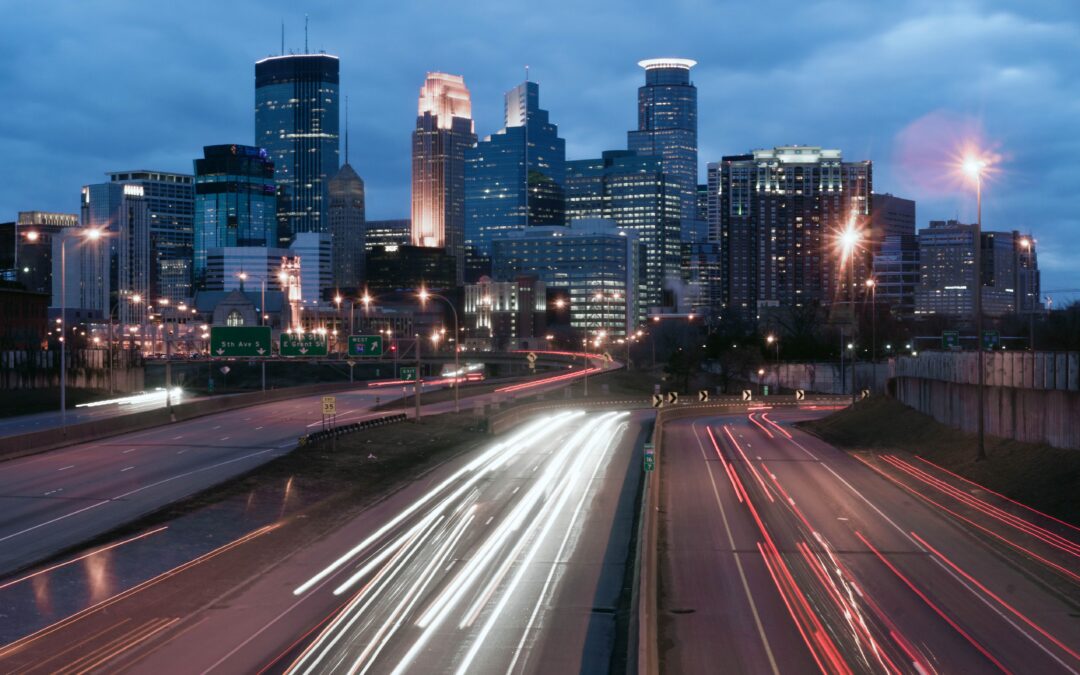The events of January 6 were infuriating. The world doesn’t especially need another organizational statement decrying the violence, condemning the liars and conspiracy theorists, or lamenting the latest vivid display of racist disparities in policing. It’s been said much better by others than I can say myself.
Instead, let me simply agree wholeheartedly with the widespread condemnations that have been issued these past two days — and then try to take the conversation to some thoughts, for what they’re worth, on philanthropy’s role in creating a better future.
Let me start by emphasizing how Jim Canales of the Barr Foundation titled his statement, one of the most eloquent that came across my inbox or Twitter feed yesterday, “We Should Not Be Surprised.” Canales writes that “this violence was incited by our own elected leaders. It was enabled by those whose own thirst for power and cowardice kept them from holding our president accountable.”
He goes on: “In pretending they could downplay or ignore his actions, they justified and amplified dangerous, undemocratic words and actions. In doing so, they made it evident that white supremacy still reigns in America.”
Canales is right that we should not be surprised — and we should absolutely focus on the complicity of those he describes. We need to do whatever we can to hold accountable those who bear responsibility for fueling (and not countering) conspiracy theories and lies, including members of Congress and those in the Trump Administration now scurrying to prepare resignation letters less than two weeks before the end (as if that will magically erase their culpability).
But we also need to think about what role we as individuals each play — and what role philanthropy plays — in charting a future in which our democracy is strong in a way it never fully has been. A future in which elected officials don’t make it harder for certain citizens to vote, they make it easier. A future in which both parties of Congress look less like a 1950s country club and more like America. A future in which your race or zip code predict nothing about your life. A future in which this country can be the beacon for the world it has always aspired to be, rather than the embarrassment it has recently been.
Support Grassroots Efforts to Strengthen Democracy
One answer lies, in no small part, right in front of us in the other very big news of the week: the election of two senators — one Black, one Jewish — to represent Georgia in the U.S. Senate, historic firsts made possible by huge turnout compared to typical run-off elections. As philanthropy historian Ben Soskis of the Urban Institute put it on Twitter on Wednesday:
“The ideal of democracy is the greatest threat to the ideology of white supremacy; neither can long endure in the presence of the other,” writes Darren Walker of the Ford Foundation in another powerful statement on the events of this week. “That is why today — and every day — we must renew our commitment to protect our democratic values and institutions from all enemies, foreign and domestic, especially those falsely disguised as patriots.”
In recent years, much has been made by thoughtful critics of the potential for philanthropy to be an anti-democratic force. But we have seen starkly the need for independent philanthropic actors to act boldly to protect democracy from those seeking to destroy it.
There are lessons in the success of Stacey Abrams, LaTosha Brown of the Black Voters Matter Fund, and many others who organized and mobilized voters in Georgia throughout this election cycle. As Brown told my co-host Grace Nicolette and me on the Giving Done Right podcast last fall:
“We have been saying that if you invest in grassroots organizing that you can actually build out the ecosystem — the social justice ecosystem — and build out infrastructure. And that you should start and center that work on a local level instead of just putting all the resources in state policy or national politics. And so for us, we demonstrated a model that [achieves] results. My niece says ‘we’ve got receipts’ to show that in fact, this model works.”
Foundations and individual donors have played a big role in the effort to counter voter suppression and engage more citizens in democracy. But many more should join them in recognizing the fight that is taking place at the community level. They should support organizations doing that work that are led by people from those communities. And that support should come in the form of the kind of unrestricted, multiyear support that those organizations require to maximize their effectiveness.
“You know, there are people who trade stocks. Please don’t have me trade stocks!,” Brown told us, laughing. “I will lose all your money because I don’t know what I’m doing. That’s not what I know how to do, right? But I know how to organize.”
So just as you trust others to manage your money, or invest your foundation’s endowment, find those groups and organizations that are positioned to do the community-level work that needs to be done — and demonstrate your trust in them with unrestricted support.
All givers need to look at what we choose to support and how we support it, as Brown encourages us. This is true whether you’re supporting community organizing to counter voter suppression or mentoring for girls. Support the organizations in the community, who know the community, and are led by those from the community. If you don’t know how to find them, reach out to those who do. Community foundations are often a good place to start.
Give Up Resources and Power
As we do this, we need to dig deep.
I worry many Americans are becoming inured to the suffering of their fellow citizens during these darkest days of the COVID-19 pandemic. The numbers of unemployed, food-insecure, and houseless are unconscionably high. Meanwhile, many well-off Americans — from billionaires to everyday affluent folks — ended 2020 wealthier than they started it, thanks to booming equity markets.
“This is not a moment to accumulate!,” as my CEP colleague Kevin Bolduc put it on Twitter.
Among foundations, we know that many stepped up giving levels in 2020. But the crisis continues, and as I suggest in this recent piece in the Stanford Social Innovation Review, perpetual foundations, by virtue of their long time-horizons, have the opportunity to be a countercyclical force. It’s necessary because, as we all know, the current crises aren’t just revealing inequities — they’re exacerbating them in ways that could last generations.
Those of us with resources need to give. And those of us with power need to cede some of it.
When I shared that thought with a friend recently, she said I was naïve. “Power does not cede,” she wrote me. Maybe she’s right. But just as funders give up power when they support organizations in the way LaTosha Brown and so many others have advocated for, they can — and sometimes do — give up power by stepping out of the spotlight and elevating the voice of community members and grantees. It can happen and it does happen.
On an individual level, we can step back. We can shut up when the time is right to shut up (I’m a work in process on this one). We can turn down invitations that others would be better suited for. We can quietly step aside and let others lead.
Break Out of the Bubble
I’d argue that we also need to look at our own networks — who we’re talking to and who we’re hearing from.
If the terrible period we are enduring in this country has taught us anything, as so many have noted, it’s that we’re all connected. But we’re too often not acting like it. We remain, as citizens and professionals, too insular and insulated — with the privileged remaining bubble-wrapped in their Zoom-filled days and quiet neighborhoods.
I struggle with this in my own life and am resolving, in this New Year, to do more to get out of my bubble; to get back to visiting with — whether virtually or in-person — community-based organizations and those they serve, to volunteer more, to continually expand my personal and professional circles.
What I am suggesting is that our insularity as individuals inhibits our effectiveness and threatens our ability to learn and grow, to build the connections we need for healthy communities, and to allow for real progress. We each need to work, every day, to counter that.
Center Racial Equity, No Matter Your Issue Area
Then there is institutional insularity. Foundation boards remain, as CEP and others have documented, shockingly white. Data that CEP has collected and analyzed suggests that board diversity and foundation practices are meaningfully related. My CEP colleagues saw slight but meaningful statistical differences across a wide range of practices related to both who is funded and how foundations relate to nonprofits.
As we all know, correlation is not causation. But it’s hardly a stretch to think that boards that are more diverse will govern foundations that are more tuned in to the needs of varied organizations and communities. The stubborn resistance by so many foundations to diversifying their governing boards is indefensible. It needs to change.
In the early days of the pandemic, as the disproportionate health and economic impact on Black, Latino, and Native people became clear, I told many groups of donors I spoke to over Zoom that you can’t respond to COVID-19 effectively without putting racial equity at the center of your strategy. This was not controversial, and no one really argued. But what’s equally true is that, if you’re working in this country anyway, you can’t do much of anything well in philanthropy without considering issues of racial equity. Many have argued this for years, but maybe finally now they will be heard.
How can you be an effective education funder if you don’t confront the disparities in school discipline or in access to resources to support learning? How can you be an effective environmental funder if you don’t address the disproportionate exposure to toxins of low-income people and people of color? How can you work on housing and homelessness without countering the racist policies that have systematically excluded Black Americans from neighborhoods and denied them opportunities and support?
You can’t.
If 2020 made these realities a little more obvious, it took only six days into 2021 to show us even more vividly what we already knew: we have a President who has sought the support of — and encouraged — white supremacists. Even in the summer of 2017, post-Charlottesville, this should have been no revelation.
What will it take for all of us to recognize the existential threat of racism and what author Isabel Wilkerson has rightly described — in what was the most consequential book I came across in 2020 — as our caste system?
Build on Moments of Hope
There are at least glimmers of hope.
Yes, it’s been depressing and infuriating to see some of the wealthiest Americans whose riches have increased dramatically over the past year give little. But others, like MacKenzie Scott, offer a path for other billionaires to follow.
Scott has both accelerated her charitable giving and prioritized organizations led by and serving Americans who have faced the greatest challenges, including those who have endured the effects of systemic racism. Last month, she gave 384 gifts totaling some $4.4 billion to a range of organizations working on immediate pandemic relief as well as, as she put it in a post announcing the gifts, those working to counter “long-term systemic inequities that have been deepened by the crisis.”
Moreover, she provided this funding with no strings attached to organizations whose goals are aligned with her own. Regular donors are stepping up too, and community foundations and other intermediaries have played a crucial connecting role during this time of crisis by helping individuals who want to do something channel their resources to the community-based organizations serving the hardest hit.
And there is some evidence that foundation philanthropy is shedding some of, to paraphrase Abraham Lincoln, the quiet dogmas that have proven inadequate to the stormy present. More funders are supporting nonprofits with fewer restrictions, fewer requirements, and more trust. Many are stepping up spending levels. Many are increasing funding to communities of color and to organizations led by people of color.
The change is not deep enough yet. And it’s unclear if it will be sustained. But it’s a start. And we need to build on it.
Complicity has been the word of the week, and rightly so. There’s lots to say about those who enabled Trump and Trumpism — and all the damage done, the racism incited and encouraged, the destruction wrought.
But if each of us in philanthropy doesn’t step up in specific, tangible ways to create a radically different future, then we’re potentially complicit in something, too: in the failure to do everything we can to build the country that I, for one, still believe the United States can be.
Phil Buchanan is president of the Center for Effective Philanthropy, author of Giving Done Right, and co-host of the podcast by the same name. Follow him on Twitter at @philxbuchanan.
Disclosure: the Barr and Ford foundations provide grant support to CEP and are clients of CEP’s assessment and advisory services work.


